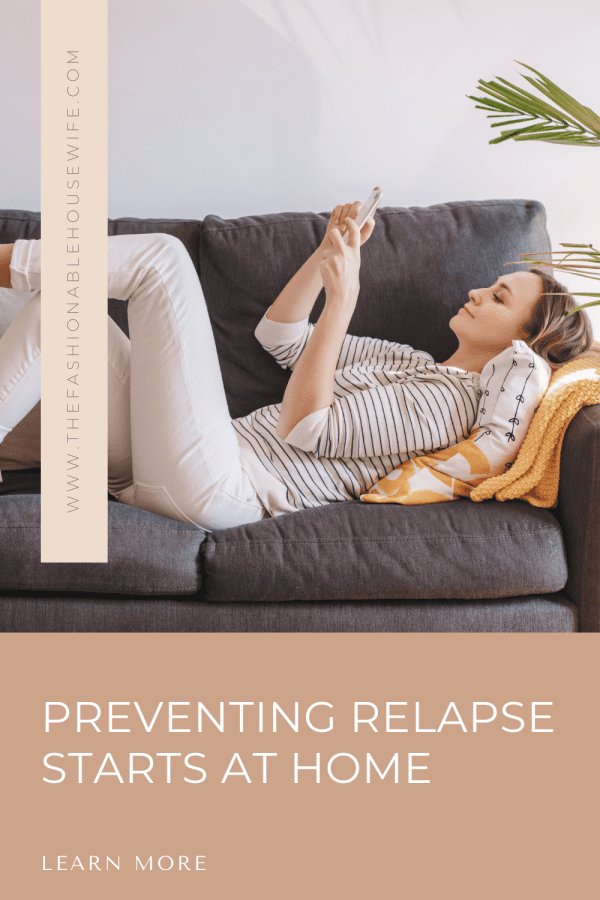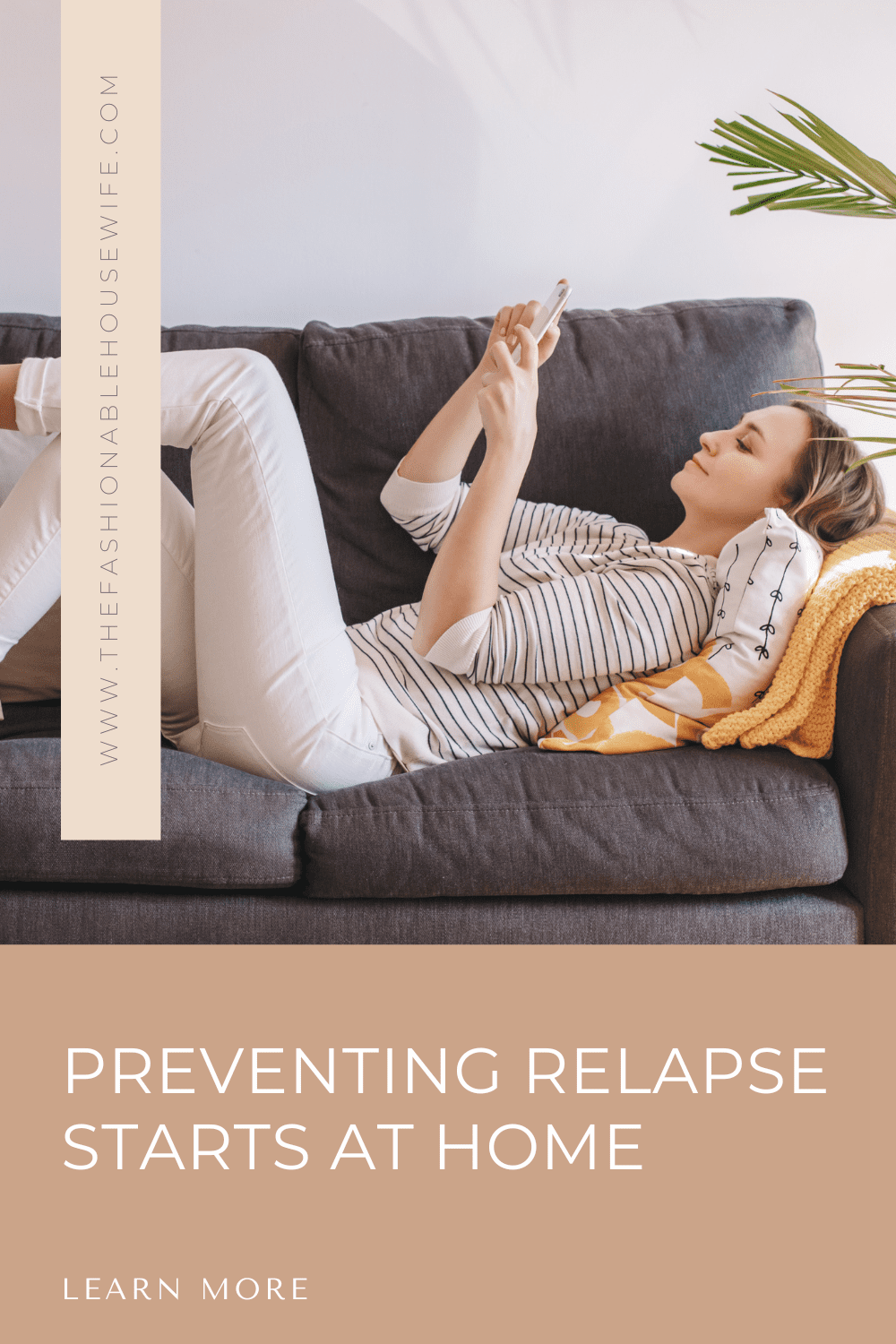Preventing Relapse Starts At Home

Recovery does not pack a suitcase and leave with the discharge papers. It lingers in the kitchen at 7 a.m., sprawls on the sofa during yet another comfort rewatch, and side‑eyes the calendar on the fridge. We cannot control everything—wouldn’t that be convenient—but we can shape the temperature of the room, the rhythm of the week, and the tone of our reactions when stress barges in without knocking.
What relapse really looks like
Relapse is usually not a trapdoor; it is a slow slide. First come the emotional rumblings—crummy sleep, snappish replies, skipping the good routines, disappearing into the bedroom. Then the mental tug‑of‑war—bargaining, rose‑tinted nostalgia, rewriting history to make last time sound “not that bad.” Only after that comes the physical return to use. Catch it early and you get choices back. Try a small, calm nudge: I’m noticing late nights and missed meetings. What would help this week. No courtroom voice. Just two people looking at the same dashboard.
Build a home that backs recovery
Treat the house like a training ground, not a pop quiz. Clear out or lock up alcohol and nonessential meds; if a prescription is necessary, use a lockbox and a simple refill log. Put a weekly rhythm on paper so the basics run on muscle memory—sleep and wake windows, meals, movement, therapy or support, actual downtime. Tiny anchors beat big speeches: a 10‑minute walk after breakfast, dinner at a consistent hour, screens down before bed, lights out at a humane time. Grand promises make noise; quiet routines do work. When you’re struggling to keep that order or looking for structured guidance, don’t hesitate to explore rehab services designed to help families create recovery‑focused routines that last.
Talk in ways that lower the heat
High‑heat conversations—sarcasm, criticism, pressure—tend to make everything wobblier. Calm, specific, predictable language helps. Swap Why did you do that for What got hard today and What would make tonight easier. Validate before solving: It makes sense you felt shaky after bumping into your old friends. Thanks for telling me. Pick a pause phrase for tense moments and actually honor it. Trust multiplies when words and follow‑through match, not when monologues get longer.
A quick detour
This morning I burned the toast thinking about how many families tiptoe around recovery like it is a sleeping dragon. You do not need perfect lines. You need repeatable ones. Fewer lectures, more check‑ins.
Boundaries that protect everyone
Boundaries are not punishments; they are house policies for health. No substances in the home. No cash loans. Sober rides only. Show up for treatment or support as recommended. Link each boundary to a clear action. If high‑risk driving starts again, shared car access pauses. Keep it simple, say it upfront, write it down if it helps, and revisit every few months. Consistency beats intensity, every time.
A plan you can grab at 2 a.m.
Put a relapse prevention plan where humans can find it—phone notes, fridge, both. List personal triggers—conflict, payday, certain streets or friend groups, loneliness, tough anniversaries—and match each with two quick responses: text a support person, take a 15‑minute walk, use a coping skill from therapy, change locations. Add a daily one‑to‑ten rating for cravings and mood with a number that triggers extra support. Include a tiny crisis script: who to call first, where to go, what happens after a lapse. Practice it like a fire drill so no one has to improvise in the dark. If you or your loved one needs immediate assistance or guidance, don’t hesitate to get help today.
Keep treatment and community in the mix
Recovery sticks better with professional care plus people who get it. Encourage therapy, medication management when prescribed, skills groups, and recovery meetings that actually fit the person’s values and schedule. Offer practical help—childcare, rides, calendar reminders—but let them own their recovery. At home, ask for substance over attendance: What did you take from group today, not Did you go. When motivation dips (because it will), look back together at what got better—mornings, sleep, fewer arguments, more laughter—so the why stays visible.
Care for mental health like it is ordinary
Because it is. Anxiety, depression, trauma, ADHD—these are not side notes; they are levers that tilt risk. Treat therapy and psychiatric follow‑ups like dental cleanings: routine, not rare. Bake coping skills into the day: short breathing breaks, movement when work fries the brain, earlier bedtimes during tough weeks. Watch for shifts in appetite, sleep, school or work performance, and respond with curiosity, not surveillance. Compassion is not naïve; it is strategic.
Support is not rescuing
Enabling feels kind in the moment and sabotages later. Covering for missed shifts, handing out cash, smoothing every bump—those calm our nerves, not the problem. Real support builds capacity: rides to therapy, a warm meal, sitting together through a craving wave, planning a sober Saturday that is actually fun. Quick self‑check: Does this help long‑term recovery, or just help me feel less anxious right now. If you are unsure, pause and phone a counselor or a trusted friend. Everyone overhelps sometimes. That is human.
When slips happen and hearts race
A slip is information, not a verdict. Safety first. Then the plan. Delay big decisions for a day if you can. Run a short, blame‑free debrief: What triggered it, what warning signs popped up, what helped even a little, and what will we adjust. Reconnect with clinicians and community support quickly. Hold empathy and accountability in the same hand. They are partners, not opposites.
Protect the people doing the protecting
Caregivers burn out when life shrinks to crisis management. Guard the basics: sleep, food, movement, one friend who knows the unedited story, one hobby that is not caregiving. Family therapy or a loved‑ones group cuts isolation and sharpens skills. Schedule small, dependable joys—a weekly walk, a movie night, a no‑phones brunch. A steadier house makes sobriety feel possible—and honestly, more appealing.
One tiny narrative detour
A dad once told me he taped two questions on the fridge: How are you, 1–10. What do you need, one or two things. Silly, he said, until it was not. Those little boxes prevented three big blowups that summer.
A mildly biased aside
People do not relapse because they are weak; they relapse because brains are efficient, stress is creative, and old pathways are fast. Families that practice boring, repeatable, compassionate routines win more often. Not always—but more often. And in alcohol recovery, more often stacks up.
Right now matters
If you are reading this just now and wondering whether to bring up a concern tonight or wait, try the gentle version tonight. Short, specific, kind. Then get to bed at a decent hour, because tomorrow is another rep, and this whole thing is won by reps—not miracles.

